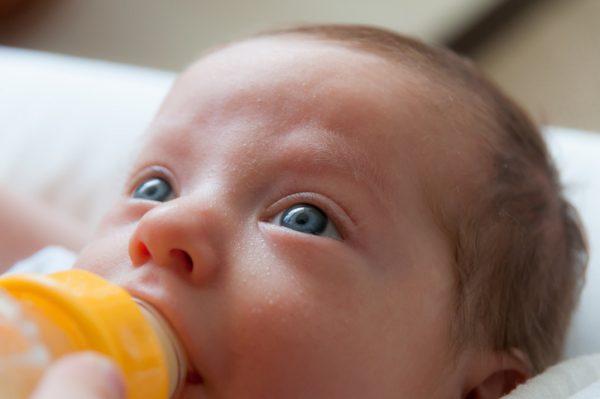
Infants born recently and in the months to come will have a new measure of protection against respiratory syncytial virus, or RSV. A drug from partners AstraZeneca and Sanofi is now FDA approved for preventing the respiratory disease that can develop from infection by the pathogen.
The FDA approval announced Monday is a broad one. In addition to covering newborns and infants born during or entering their first RSV season, the decision includes children up to 24 months of age who may still be vulnerable in their second RSV season. The drug, nirsevimab, will be marketed as Beyfortus, the same brand name for the product in Europe, where it was approved last fall.

With the Rise of AI, What IP Disputes in Healthcare Are Likely to Emerge?
Munck Wilson Mandala Partner Greg Howison shared his perspective on some of the legal ramifications around AI, IP, connected devices and the data they generate, in response to emailed questions.
“RSV can cause serious disease in infants and some children and results in a large number of emergency department and physician office visits each year,” John Farley, director of the Office of Infectious Diseases in the FDA’s Center for Drug Evaluation and Research said in the agency’s announcement. “Today’s approval addresses the great need for products to help reduce the impact of RSV disease on children, families and the health care system.”
RSV can lead to lower respiratory tract infection in all age groups, but the risk of severe disease is higher in the elderly and infants, two groups with weaker immune systems. In the case of infants, the immune system is still developing. Further compounding the disease risk in infants and toddlers is their smaller and narrower airways, which are more susceptible to blockage from inflammation. About 1% to 3% of children under 12 months of age in the U.S. are hospitalized each year due to RSV, according to the American Academy of Pediatrics.
In healthy people, RSV infection leads to symptoms similar to those of the common cold. However, those with weak or undeveloped immune systems lack the antibodies to fight the infection. Beyfortus works by what’s called passive immunity. Instead of immunity developed from antibodies produced by a person’s own immune system, the drug provides engineered versions of those protective antibodies. From that perspective, Sanofi intends for the drug to be used as a vaccine, Jon Heinrichs, the pharma giant’s associate vice president, research and development, told MedCity News in an interview earlier this year. Because the drug is engineered with a longer half-life, it is able to protect babies for the duration of the RSV season from fall through winter, he said.
Prior to Beyfortus’s approval, the only FDA-approved antibody drug for RSV was Synagis from AstraZeneca. But Synagis is only approved for treating premature babies and the drug’s short half-life means the injectable drug must be administered once a month.
The FDA based Beyfortus’s approval on the results of three placebo-controlled clinical trials that evaluated the incidence of lower respiratory tract infection from RSV that required medical attention. Patients were evaluated during the 150-day period after the drug, a single intramuscular injection, was administered. In the two studies that evaluated Beyfortus in infants, one in premature babies and the other in those born at term or late term, results showed statistically significant reductions in these infections. In the third study, which enrolled children up to 24 months of age as well as infants with chronic lung disease or congenital heart disease, the FDA said data provided evidence for using the drug to prevent lower respiratory tract infection in this group.
Side effects reported from the studies include rash and injection site reactions. The FDA urged caution in administering Beyfortus to children with hypersensitivity reactions. Such reactions, such as anaphylaxis, have been observed with other antibody drugs developed to address viral pathogens. Last month, an FDA advisory committee voted unanimously that the benefits of Beyfortus outweigh its risks.
Beyfortus comes from the labs of AstraZeneca. In 2017, Sanofi paid €120 million up front to begin a partnership on the drug. Under the deal terms, AstraZeneca continued to lead on development and manufacturing of the antibody. Sanofi is taking the lead on its commercialization. The companies will share equally in the profits from sales of the product.
In addition to European Commission approval, Beyfortus received regulatory nods in Great Britain last year and in Canada earlier this year. Sanofi said the drug will become available in advance of the upcoming RSV season. No pricing details have been disclosed. Regulatory review is ongoing in China, Japan, and other countries.
Photo: metinkiyak, Getty images














